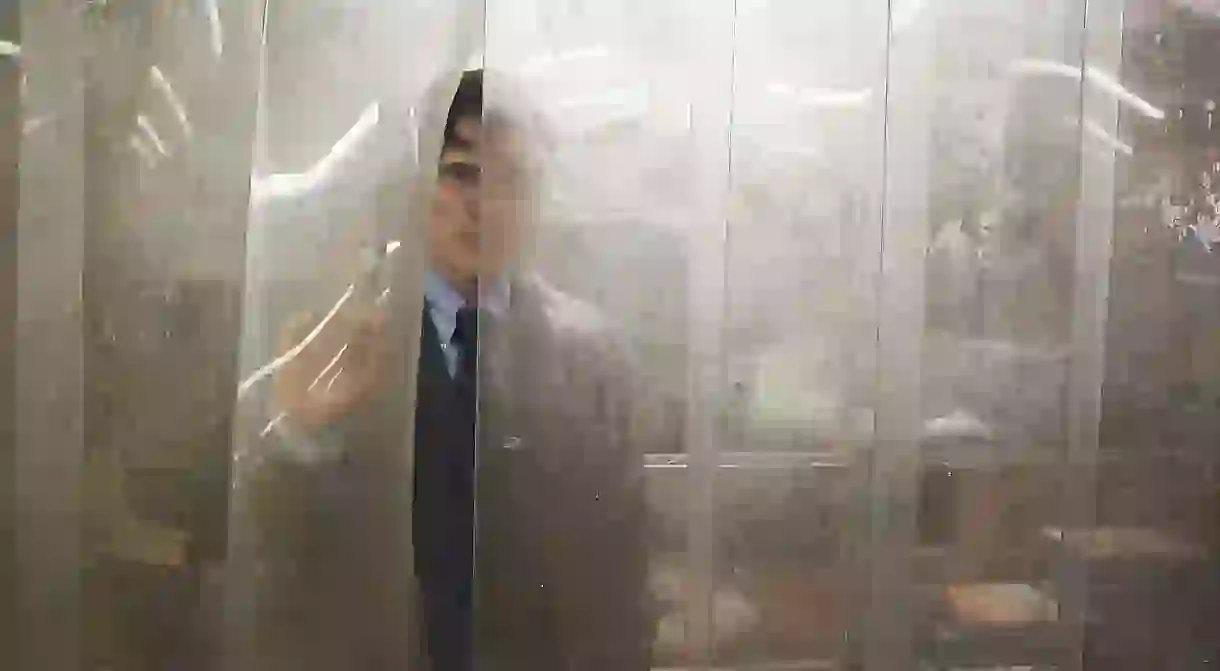Lars von Trier’s Latest Shocker Prompts Walkouts at Cannes

The House that Jack Built, a violent and provocative film by Lars von Trier joins the long list of films that have shocked critics at Cannes this year. We take a closer look at this incident and how it compares to Cannes scandals of the past.
It’s hardly surprising that Lars von Trier would elicit such extreme reactions at Cannes 2018; he has provoked, indeed goaded, critics and fans at previous festivals in quite an extreme manner. In 2011, while promoting Melancholia, he was asked about his German roots and the ‘Nazi aesthetic’ some critics spotted in his films. The directors reply, a ‘joke’ about ‘understanding Hitler’ and Israel being a ‘pain in the ass’, understandably caused furore. The fallout saw von Trier banned for a year from Cannes, with a formal apology being released soon after.
You might also like: The Most Controversial Films Banned In France

The House that Jack Built (2018) follows a serial killer over the course of 12 years. The movie stars Matt Dillon, Uma Thurman and Riley Keough and when it was screened to critics at this years film festival, it prompted a walkout from more than 100 attendees.
The trailer for the film comes with this warning: “The following trailer contains graphic violence and is of an extremely provocative nature. Do not watch if you are easily offended.”
In The House that Jack Built, Dillon’s character goes on a killing spree, which includes repeated acts of graphic violence against women and young children.
Reviews for the film have been mixed, but this isn’t the first work to cause controversy at Cannes.
Blue is the Warmest Colour (2013) won rave reviews when it was screened, but also saw a handful of complaints over the graphic nature of its sex scenes. In particular, one seven-minute take featuring intercourse between the two female leads. Although the film went on to win the Palme D’Or (the highest prize awarded at Cannes), its reputation was tarnished when the cast accused director Abdellatif Kechiche of being exploitative on set.
You might also like: 15 Films Banned Around the World for Unbelievable Reasons
Causing just as much debate, albeit for entirely different reasons, was Michael Moore’s post-Iraq war documentary Fahrenheit 9/11 (2004). This time, the film’s loudest detractors accused the Cannes jury of political bias in awarding this attack on President Bush the Palme D’Or. One wonders how audiences would react to a film today about the current US President…
Another controversial winner, back in 1996, was David Cronenberg’s Crash,a movie which became known for a particularly shocking sex scene involving a leg wound.

Provoking the ire of The Vatican, La Dolce Vita (1960) was almost pulled from its scheduled screening at Cannes after the Catholic Church took offence to the supposed mocking Jesus in Federico Fellini’s film. To their credit, festival organisers stuck to their guns and showed La Dolce Vita as planned. A year later, Viridiana (1961) also enraged the Catholic church, as well as other powerful establishments around the world; the Spanish government of Francisco Franco actually banned the film for its ‘blasphemous’ content. To modern eyes, these films seem tame, but there was huge outcry in the 1960s over their inclusion at Cannes.
If any other modern director can garner reactions that rival von Trier’s, surely its French provocateur Gasper Noé. Irréversible (2002) not only saw a stream of critics walk out of the screening but even led to several cases of fainting over the brutal violence on screen. Not to be outdone, von Trier himself returned to the festival in 2009 with Antichrist, which features graphic sex and genital mutilation.
Cannes and controversy seem to be a constant pairing.













